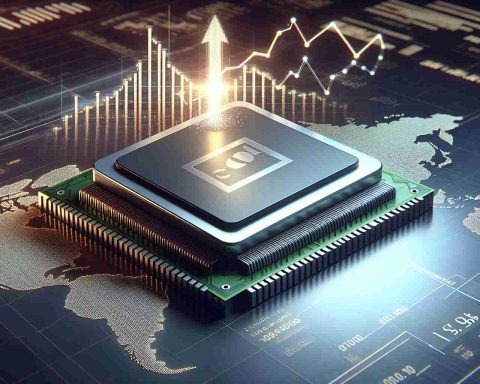Artificial Intelligence is reshaping the healthcare landscape in unprecedented ways. Major players in the industry are leveraging cutting-edge technology to tackle critical challenges, including an alarming workforce shortage.
During the recent J.P. Morgan Healthcare Conference in San Francisco, Jensen Huang, CEO of NVIDIA, collaborated with leading figures from renowned organizations to discuss innovative advancements in biomedical science. The World Health Organization has cautioned that the healthcare sector could face a deficit of 10 million professionals by the decade’s end, signaling the urgency for AI’s integration.
Collaborative efforts announced at the conference aim to enhance drug research, improve pathology processes, and apply AI effectively throughout the medical field. Huang spotlighted the remarkable evolution of AI technology, emphasizing its newfound capacity for reasoning and problem-solving.
The Arc Institute, founded by Patrick Collison, is focused on providing long-term funding for scientific inquiries that often go unfunded, promoting groundbreaking research in molecular biology. Mayo Clinic’s Christina Zorn detailed how AI is being integrated into pathology to revolutionize cancer treatment.
Leaders from Illumina and IQVIA echoed similar sentiments, revealing how multimodal AI can streamline data to enhance clinical trial efficiency and patient care. Their commitment to privacy and safety underscores the responsible use of AI technology.
This confluence of AI and healthcare is not just an innovation; it is a necessary evolution.
Artificial Intelligence: A Game Changer in Healthcare and Its Wider Implications
Artificial Intelligence (AI) is significantly reshaping the healthcare landscape, presenting a paradigm shift that extends beyond traditional medical practices. As major industry players adopt advanced technologies to address pressing issues like workforce shortages, the implications stretch far into the realms of environment, humanity, economy, and the future of our global society.
The healthcare sector faces a formidable challenge—an anticipated shortage of 10 million medical professionals by the end of the decade, as highlighted by the World Health Organization. This stark reality is exacerbated by a population that is both aging and growing, intensifying the demand for healthcare services. In this context, AI emerges not just as a tool, but as an essential lifeline. By streamlining processes, enhancing efficiency in drug research, improving pathology procedures, and even personalizing patient care, AI fosters a more robust healthcare system equipped to meet future demands.
As discussed at the recent J.P. Morgan Healthcare Conference, collaborations among leading organizations are catalyzing innovations that promise to revolutionize the industry. For instance, the integration of AI in cancer treatment can lead to earlier diagnoses and more effective therapies, potentially saving countless lives. The Arc Institute’s commitment to funding trailblazing research underscores a vital intersection between AI technology and groundbreaking scientific inquiry, particularly in molecular biology. This could lead to medical advancements previously deemed unattainable.
However, the influence of AI on healthcare resonates far beyond immediate clinical settings. Economically, by alleviating workforce shortages and enhancing operational efficiency, AI implementation can lead to substantial cost savings. These savings can be redirected to improve healthcare infrastructure and expand access to underserved communities. The potential for AI to streamline clinical trials, as emphasized by leaders at Illumina and IQVIA, suggests that new therapies could reach the market faster than ever, fostering innovation while reducing the economic burden on healthcare systems.
On a global scale, responsibly harnessed AI technology can contribute to sustainable development goals, particularly in health and well-being. The emphasis on privacy and safety, as highlighted by experts, is vital for building public trust in AI applications. By ensuring that technology is utilized ethically and responsibly, we safeguard humanity’s vital interests while harnessing AI’s full potential.
Looking to the future of humanity, the integration of AI into healthcare is a crucial step towards a more equitable and resilient society. As we confront global challenges such as pandemics and chronic diseases, AI can play a pivotal role in shaping responsive healthcare systems. Such systems can not only adapt to immediate health crises but could be pivotal in developing a preventive approach toward health and disease management.
In summary, the evolution of AI in healthcare represents a critical juncture in our medical landscape, with reverberations across economic, environmental, and humanitarian fronts. It serves as a testament to human ingenuity—an evolution that holds the potential to redefine how we approach health challenges, transforming the future of humanity for the better. The commitment to responsible AI use will be crucial as we navigate these transformative changes, paving the way for a healthier, more equitable world.
The AI Revolution: Transforming Healthcare in the 21st Century
The Integration of Artificial Intelligence in Healthcare
Artificial Intelligence (AI) is no longer a futuristic concept; it is actively reshaping the healthcare landscape with innovative solutions to critical challenges. With looming workforce shortages and increasing demands for medical services, AI technologies are becoming essential in bridging gaps and enhancing healthcare delivery.
Workforce Shortages and AI Solutions
The World Health Organization (WHO) has issued a warning that the global healthcare sector could face a deficit of up to 10 million professionals by 2030. This crisis is driving the urgency for AI’s integration into various aspects of healthcare, signaling a transition to more automated and efficient systems.
Innovations in Biomedical Science
At the recent J.P. Morgan Healthcare Conference, notable industry figures, including Jensen Huang, CEO of NVIDIA, gathered to discuss significant advancements in biomedical science powered by AI. These innovations aim to enhance drug research, improve diagnostic processes, and apply data-driven strategies across the medical field.
Key Areas of AI Application
1. Drug Research: AI is streamlining the drug discovery process by analyzing vast datasets that can significantly speed up the identification of potential new drugs.
2. Pathology: Organizations like the Mayo Clinic are employing AI in pathology, leading to quicker and more accurate cancer diagnoses. AI algorithms can analyze medical images more efficiently than traditional methods, thereby improving the chances of early detection and tailored treatment plans.
3. Clinical Trials: According to leaders from Illumina and IQVIA, AI’s multimodal capabilities allow for streamlined data management, enhancing the efficiency of clinical trials while ensuring robust patient safety measures.
Pros and Cons of AI in Healthcare
Pros:
– Increased Efficiency: AI can process data faster than humans, reducing the time needed for diagnoses and treatments.
– Improved Accuracy: Advanced algorithms can lead to fewer errors in diagnostic processes.
– Enhanced Research Capabilities: AI facilitates the analysis of large datasets, leading to breakthroughs in drug research and disease understanding.
Cons:
– Privacy Concerns: The use of sensitive patient data raises concerns about data security and privacy.
– Job Displacement: The automation of certain tasks may lead to reduced employment opportunities in some healthcare roles.
– Bias in AI Models: If not properly trained, AI systems can perpetuate existing biases in healthcare, leading to inequalities in treatment.
The Future of AI in Healthcare
The integration of AI into healthcare is not just about innovation but is also a necessary evolution. As more organizations commit to responsible AI usage, driven by principles of safety and privacy, we can expect a more collaborative and effective healthcare landscape. The anticipated trends point toward a future where AI empowers healthcare professionals to make data-informed decisions, ultimately enhancing patient care and outcomes.
Insights and Predictions
As AI continues to evolve, experts predict that its applications will widely expand to include personalized medicine, remote patient monitoring, and virtual health assistants. The convergence of AI technologies with telemedicine also represents a transformative opportunity to provide care to underserved populations.
As this technological evolution unfolds, stakeholders must navigate the associated challenges, particularly around ethics, data security, and equitable access to AI-driven healthcare solutions.
For a deeper dive into the future of healthcare innovation, visit NVIDIA for insights into AI technologies and their implications in various sectors.

















